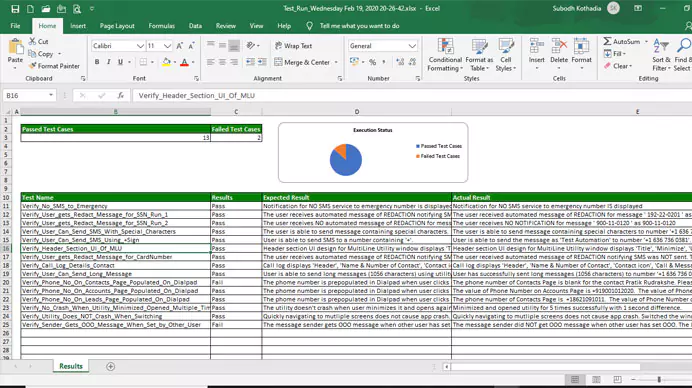
Given Salesforce is the ocean offering multiple services and allowing the customers to customize according to their needs, the test automation has been the bigger challenge for every organization as the product goes over many iterations and there will be always budget constraints on test engineering services. The current situation like COVID 19 will squeeze the budget further.
To achieve the speed to market with reduced cost in such a situation, Bolt Test Automation 4th GL framework, which is already comprising hundreds of microservices written for Salesforce generic flows, is a perfect suit for test automation.
Though Selenium offers the excellent codeless test automation that it is more comprehensive by extending its capabilities to test web components, the cost has to be still within the budget. Though framework concepts are very popular and many companies are adopting the framework approach, there would be the limitation of having a dependency on the test engineering team besides cost.
We, at Bolt, have built the 4th GL Test Automation framework comprising hundreds of microservices written for Salesforce generic flows. To name a few, Log In, Open Contacts/Accounts/Leads/Opportunities etc. Create/Edit/Delete Multiple Contacts/Accounts/Leads/Opportunities etc., Install Package, Configure Sites and so many by reading data from excel.
To make it simple, we have designed our framework in 4 layers and 1 Helper supporting misc. functions such as Excel Data Read and Write, Calculate Time, Parse Strings etc.
- Initiator - Customizable/Configurable Regression Packs
- Script Engine - Keywords Driven Testcase Construction (e.g. Log In, Log Out etc. )
- Navigator - Microservices based Architecture
- Data Loader - Abiliity to execute Regression with multiple data sets
- Helper - Application Support Functions
Comprises of the test scripts selected for run i.e. Customizable/Configurable Regression Packs
Comprises of all the tests in a single layer. Each script is constructed using keywords to make it simple English i.e. Keywords Driven Testcase Construction.
Heart of the framework comprising the micro services for Salesforce i.e. Microservices based Architecture
Comprises of all data that needs to be used in the test scripts under different scenarios i.e. ability to execute Regression with multiple data sets
Stores the results of every run with data and time stamp
Initialize the scripts in a simple way just by calling it and passing Test Name as a parameter.
Build the scripts in a simple way just by calling our microservices i.e. ActionKeywords.Open_Browser(); ActionKeywords.Log_In(sPath, SheetName,4); -> taking the log in parameters from data loader.
Verify results generated with data and time stamp on the file name displaying passed and failed tests along with Expected Result and Actual Result for every test case.
- The pack can be executed with a single click regardless of role/technical knowledge.
- The results can be viewed in an excel file.
- The new test cases can be built with a single call to our microservices with basic knowledge reducing the test automation cost significantly, very minimal cost to the organization.
- Multiple regression packs can be run from a single or multiple machines and results can be easily viewed.
- The user doesn’t need to install Selenium or any other test automation tool on his/her machine except JDK.
-
It allows the test team organization to be more productive by
- Optimizing costs
- Investing strategically
- Re-utilizing the human capital
-
The test team organization can deliver more with less by
- Serving more customers
- Running larger environments
- Exploiting human knowledge
-
The test team organization can provide better quality by
- Improving service delivery
- Reducing error rates
- Increasing the availability
